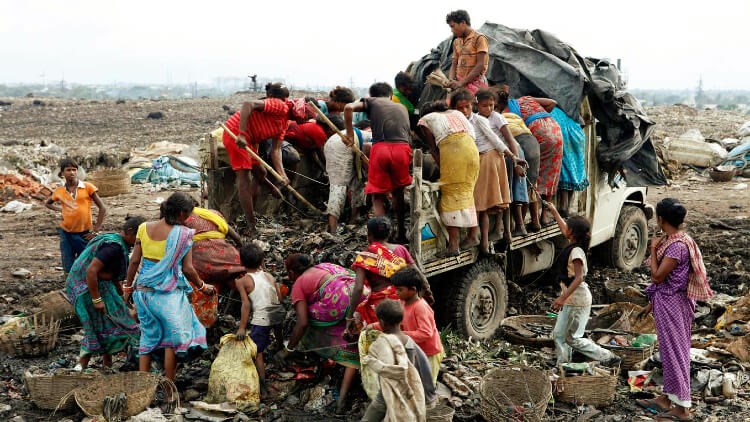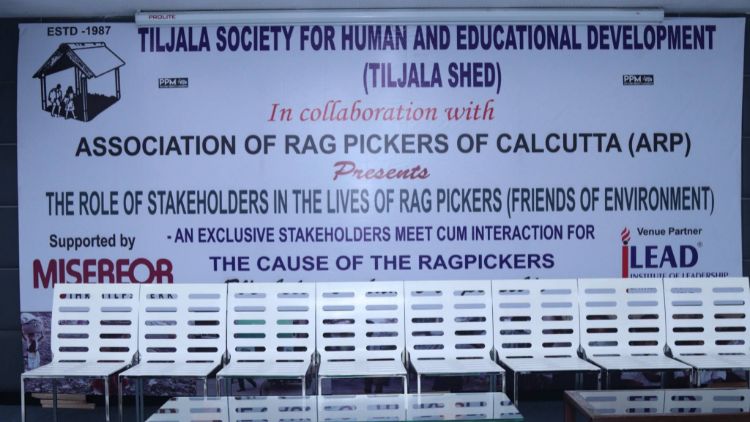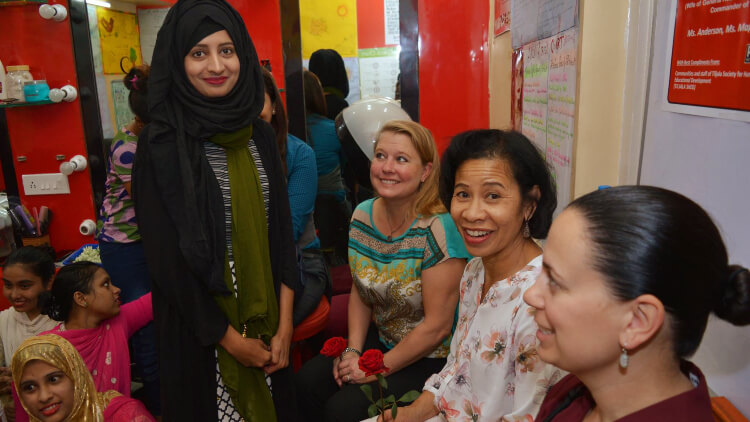
Mansoorudin Faridi/Kolkata
Years ago, a revolution started from a dump of urban garbage at Dara Para, along the railway line in Taljala, a filthy and backward area of Kolkata.
Muhammad Alamgir, a government school teacher was looking at this heap of garbage and the poor children who were picking recyclable bits from it. He was dreaming of taking these children who live off this dump on the path of a good life and a bright future through education.
Initially, the dream looked unachievable yet Alamgir didn’t give up. He sought people’s money and cooperation in his mission yet the response was lukewarm.

The garbage fump of Dara Para in Kolkata
Little did he know that the Church leaders are watching him and studying his mission' and something unexpected was to happen to him.
Misreor, a German Roman Catholic church charity, Organisation for Development Cooperative came forward to fund his mission in a major way. Alamgir had no longer to look for more support to give the poor children a better life.
The Misereor charity has been associated with Muhammad Alamgir pioneering work for 23 years that has changed the lives of hundreds of former ragpickers of Kolkata.

The students of Alamgir's school
The Church charity has helped him change the lives of thousands of poor children and girls in Kolkata. Those who were sifting through the garbage for sustenance are today living a dignified life. Some are into business and some have jobs. Some of the girls have been educated, some are teachers and others chartered accountants in a firm
Speaking to Awaz-the Voice, Mohammad Alamgir said he is disappointed at the attitude of Muslims who have not yet understood the importance of building schools and hospitals. “They have looked with suspicion on those who have done good deeds," he said.
He said the Muslims mostly prefer to build a mosque, even though religion had ordered them to even “go to China for education.” He said he is disappointed at the reality that the work that Muslim institutions should have done is done by the Church and that too silently.
Muhammad Alamgir is a government teacher whose mission is not limited to the classroom of a school. He vowed to light brighten the lives of children living in an area where garbage was the source of livelihood for people.

The board outsideAlamgir's school
The majority of Muhammad Alamgir’s students are involved in picking up trash from the streets. These children carry heavy bags on their shoulders in which they collect plastic and paper to sell to a kabbadi store.
His class has given hope to children who arranging two square meals a day was their biggest achievement. Muhammad Alamgir had chosen 'Dara Para' in 'Taljala' for his mission. He also lives there.
Muhammad Alamgir embarked on this mission in 1987. Gradually more people joined his campaign that soon became a movement. He set a precedent for carrying out social and welfare work in an organised manner. He may not have received much acclaim at home, but he has found help abroad, especially in Europe.
Muhammad Alamgir's initiative was exemplary, with a mission to work for the welfare and education of women and children. He soon realized that this work had to be done in a very systematic way. Together with Tiljala Society for Human and Educational Development, he set up an NGO called Taljala Shed, with a mission to improve the lives of the local people.

Germans interacting with the teachers and students
Speaking to Awaz-the Voice, Mohammad Alamgir says, "I set up the NGO at a time when people were not aware of it. For a long time, I felt that such a mission was lonely and unorganized. It doesn't work that way; it is very important to take advantage of government schemes and aid funds. That's why I turned this campaign into a movement in the form of an NGO.”
Mohammad Alamgir achieved great success when two European organizations turned their attention to his work. This was the first support that encouraged Muhammad Alamgir. However, his major support in the form of financial aid came from Messier that is part of the Roman Catholic Church, for Tiljala Shed for the next 23 years. The NGO also guided him in his work.
